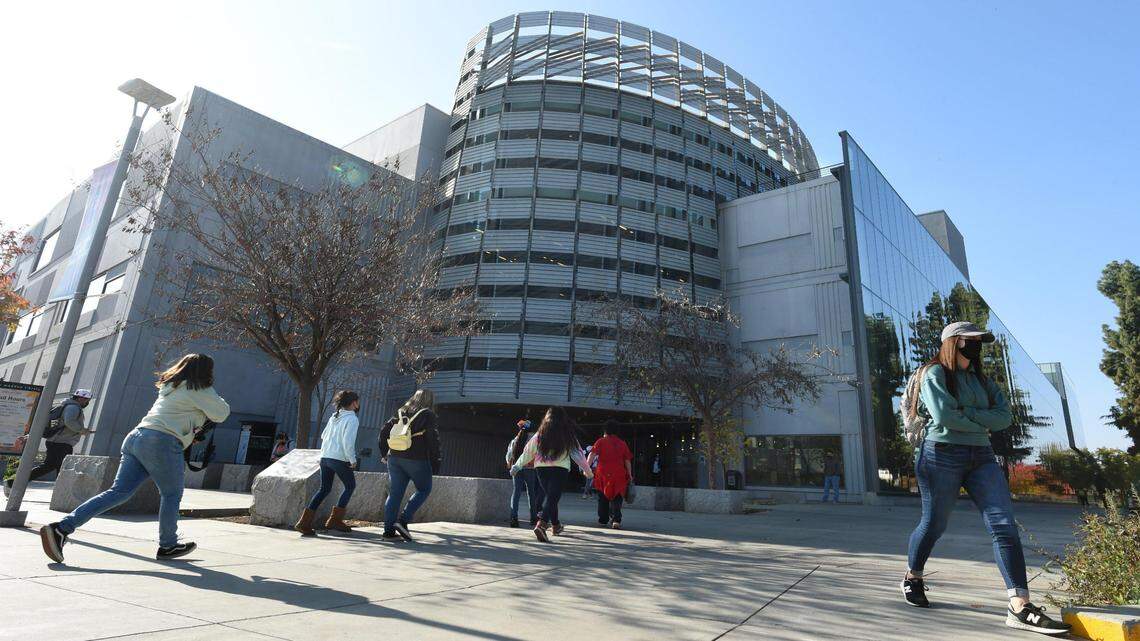They say your life can change in an instant; mine changed in 26 seconds on Sept. 10 between 12:50 p.m. and 1 p.m. in a third-floor classroom of the Family Food Sciences building on the Fresno State campus. Yet I would not know about the incident until Saturday evening, Sept. 13 when I received a call from an administrator in Faculty Affairs at the university wishing to corroborate what was said Sept. 10.
What would follow were several conversations between the vice president of Faculty Affairs, the chair of the Fresno State Communication Department, California Faculty Association union reps and myself that led to being placed on paid administrative leave.
I was told initially this was for my benefit and safety. What would come later was the letter detailing the restrictions of my leave, which included no contact with Fresno State faculty or students. All communication must go through union representatives.
Additionally, it was relayed that the student who illegally recorded me in class would not be investigated. According to Fresno State administration, they did not have the ability to conduct such investigation nor the ability to identify which student out of 25 did the recording.
Over the next weeks I would hear opposing statements “Fresno State is doing an investigation” or “Fresno State is not investigating.” At no point did Fresno State reach out to me for clarification about the incident or require further explanation. I did provide an initial recording of events from my point of view, but that was all I contributed to said investigation.
While my life got turned upside down with a consistent barrage of social media and email harassment, even a death threat sent to my home and a property invasion at 2:30 a.m., Fresno State remained quiet about this incident aside from its public statement not condoning violent rhetoric. Not once did Fresno State communicate about the unlawfulness of the student’s actions. Ironically the only person who committed a crime was the student who recorded me in class. My right to free speech remains my legal right.
I will not defend what I said because, honestly, it was said in a very “off the cuff,” in-the-moment, manner. It was never intended to mean anything beyond an opinion; however distasteful some might find it. It was said to one student between classes in a classroom. It was said as a private interaction between me and the student. While the classroom is considered a private space, it’s illegal to record someone without their permission in a private space.
What is not widely known is, before I even said the damning five words “too bad he’s not dead,” I was being recorded. I was being recorded as I greeted the student. That greeting is in the original audio recording. There leaves little doubt that the recording was intentional and targeted. Which leads into the broader conversation that needs to be had: The sanctity of the academic classroom and the assault on free speech.
I am a communication studies instructor. I teach students how to communicate more effectively — publicly, socially, argumentatively and interpersonally. The class where the incident occurred was public speaking. Public speaking classes are known to be spaces where contentious topics are explored. Ground rules are set in class from the start — respect, kindness and tolerance are key. In communication courses we learn how to work through conflict and talk about difficult topics — not for agreement, but for understanding. Sometimes this involves finding middle ground. Sometimes this entails acts of contrition.
What that student did by illegally recording me in class sullies the academic classroom experience for both students and faculty. I concede that my words did not represent my best self, but what that student did to the integrity of the classroom experience was far more nefarious. The student created fear where there once had been safety; the student created suspicion where there had been trust; the student created self-censorship where there had been freedom of self-expression
It appears the student meant to hurt me personally by what they perceived I represented.
Truthfully, what they did was hurt the sacred institution of the academic classroom and as a result, assault our right to free speech in America.
Barri Brennan is a Communications Studies instructor at Fresno State.

